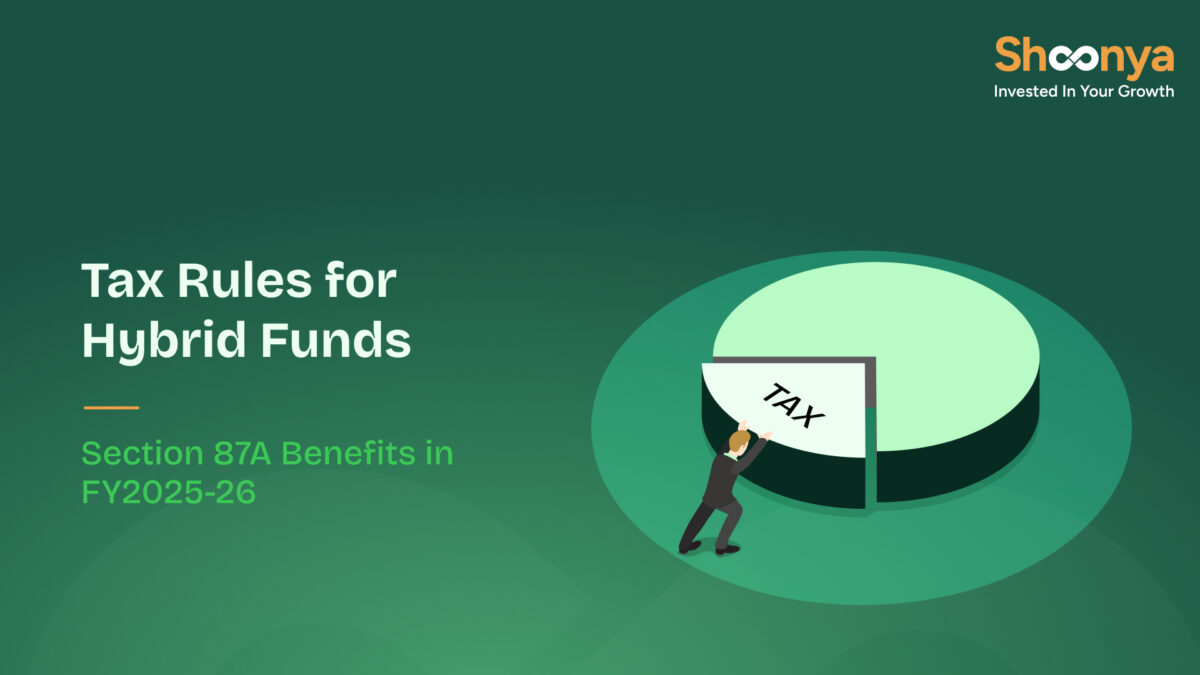Conservative Hybrid Funds: Verify Section 87A Rebate Eligibility

The rules for conservative hybrid funds have changed in recent years, leaving many investors unsure about how these schemes are taxed. According to SEBI guidelines, these funds invest most of their portfolio in debt, usually between 75% and 90%, and the remaining 10% to 25% in equity. Since debt is the larger portion, their tax treatment is different from that of equity mutual funds.
Under the new tax regime, profits from conservative hybrid funds are always taxed at your income tax slab rate because they fall in the debt fund category. But if your total income, including gains from these funds, is within ₹12 lakh in FY2025-26, you can claim the Section 87A rebate.
Conservative Hybrid Funds Tax Rules Explained
Conservative hybrid funds invest most of their portfolio in debt instruments, such as bonds, while allocating a smaller portion to equity. Because of this structure, SEBI classifies them as debt-oriented schemes.
Now, here’s how the taxation works under the new tax regime:
- No matter how long you hold them, the profits are treated as short-term capital gains. This implies that they are included in your overall income and are taxed based on the slab you belong to, similar to salary, rent, or FD interest.
- Equity funds enjoy special tax treatment (10% long-term capital gains after ₹1 lakh exemption). On the other hand, conservative hybrid funds are always taxed at the normal slab rate.
How does the Section 87A Rebate Apply?
If your total taxable income (including income from conservative hybrid funds) is ₹12 lakh or less, you can claim the rebate under Section 87A in FY2025-26. This rebate can reduce your tax liability to zero. That means you won’t be liable to pay tax.
For example, your salary, rent, or FD income is ₹9 lakh and you earn ₹80,000 from conservative hybrid funds, your total income will be ₹9.8 lakh. Therefore, it is less than ₹12 lakh; you can claim the 87A rebate and enjoy complete tax relief.
Recent Changes in Mutual Funds Taxation Rules
The taxation of mutual funds, particularly debt-oriented schemes such as conservative hybrid funds, has undergone a significant shift in recent budgets. Here are the details:
- Budget 2023: Any mutual fund where holding in equities was below 35% was considered a debt fund. Gains on these were taxed as short-term capital gains, at the slab rate, regardless of how long you held them.
- Budget 2024: From FY2025-26 onwards, if the debt portion is 65% or more, then the scheme’s gains are taxed at the slab rate, again regardless of the holding period.
- Conservative Hybrid Funds under SEBI Rules: Since these funds always have 75–90% in debt, they fall into this category automatically. This means the profits you earn will be taxed according to the income tax bracket you fall under.
Conclusion
If you are considering conservative hybrid funds, they can work well when you want most of your money in debt with a small portion in equity. For tax purposes, these funds are treated like debt funds, which means the returns you earn are taxed according to the income tax bracket you fall under.
Before you invest, think about how these funds fit into your overall financial and tax plan. By understanding income tax brackets, how debt funds are taxed, and provisions such as Section 87A, you can make better choices and avoid surprises when it’s time to file your taxes.
Source: MoneyControl
Disclaimer: Investments in the securities market are subject to market risks; read all the related documents carefully before investing.








